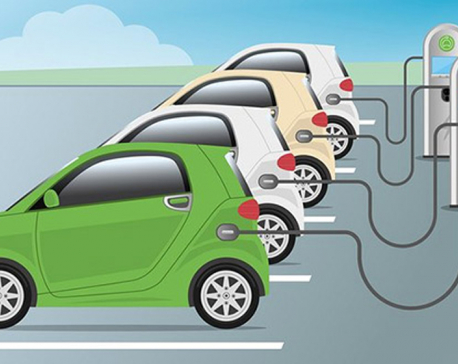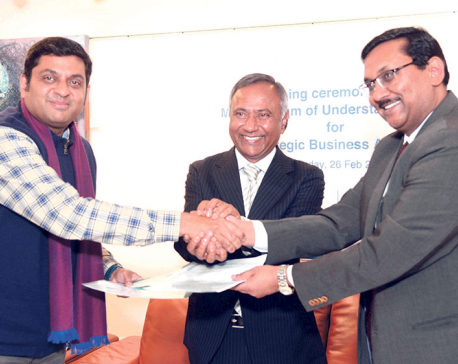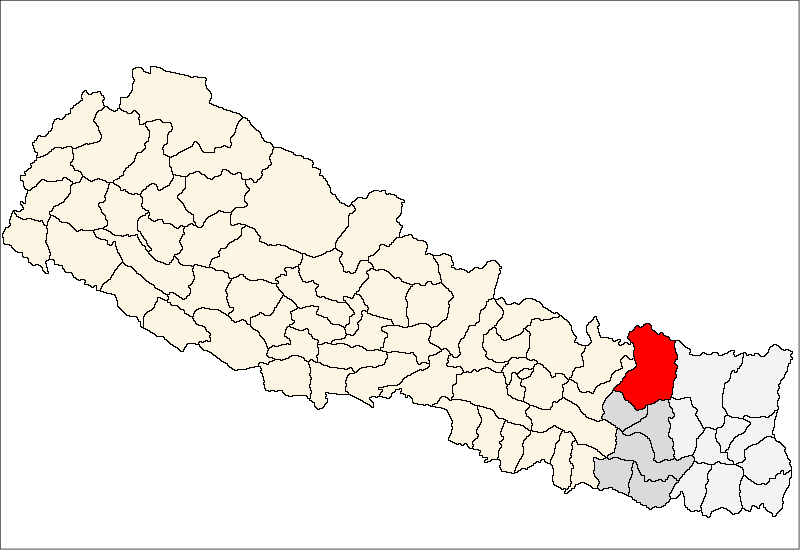
OR
Editorial
Switching to the EV Culture: The Sooner, the Better
Published On: May 6, 2023 07:25 AM NPT By: Republica | @RepublicaNepal
_20230506072433.jpg)
It seems Nepal has started taking steps in the right direction when it comes to promoting electric vehicles (EVs) and building the necessary infrastructure to support EV transportation. According to a recent news report, the Nepal Electricity Authority (NEA) is preparing to bring into operation 51 more fast charging stations within the next month. This comes after the NEA announced plans to install charging stations two years ago and awarded the contract to Jiangsu Jingdao New Energy Co Ltd. Due to the COVID-19 pandemic, the plan hung in the balance for some time, but the infrastructures are now in their final stage of construction, with an additional 11 charging stations planned to be installed by June end this year. Furthermore, there has been a surge in the import of EVs into Nepal, with imports increasing by 66.39% in the first nine months of the current fiscal year compared to the previous year.
The transition towards EVs from fossil-fuel based transportation is essential to combat climate change and reduce air pollution, and Nepal's efforts towards this transition are commendable. However, there is still much work to be done, and the installation of charging stations at convenient intervals on all major highways of the country is crucial in promoting the EV culture. While the pace of installation of charging stations across the country may not be as expected at present, the NEA is moving aggressively with its plan to install EV charging stations across the country. The NEA aims to install one charging station at every 60 km stretch of the main highways across the country and is looking forward to collaborating with the private sector to install a total of 500 charging stations by the next fiscal year end.
However, the private sector stakeholders say they will face excess costs for operating the charging stations. This is because the NEA has maintained the threshold allowing the private sector to charge only up to 20% above the actual electricity cost, which will not help them earn profits in the business. Therefore, the government needs to work with the private sector to find a solution that works for everyone.
The surge in the import of EVs into Nepal presents the country with a golden opportunity to establish itself as a trailblazer in sustainable transportation, at least in South Asia. The economic benefits of EVs extend beyond reducing the import bills for fossil fuels. EVs are cheaper to operate and maintain compared to their fossil fuel counterparts, with lower fuel and maintenance costs that can significantly reduce the overall cost of transportation. This makes EVs a more cost-effective solution, especially for low-income households and small businesses. Furthermore, the increased demand for EVs will create new opportunities for local businesses and entrepreneurs, leading to job creation and economic growth.
Moreover, the use of fossil fuels for transportation is a major contributor to air pollution and climate change. According to the Department of Customs, Nepal spent Rs 164.15 billion on the import of petroleum products in 2019/20, which increased to Rs 175.61 billion in 2020/21 and to a whopping Rs 334.34 billion in 2021/22. This indicates that the average percentage share of petroleum in the country's total import is around 17.5 percent. By reducing the import of fossil fuels through the adoption of EVs, Nepal can not only reduce its carbon footprint but also improve its balance of payments and reduce the trade deficit.
The government's recent positive stance towards EVs is encouraging, but it needs to take a more pragmatic approach towards their categorization. While the imposition of a nominal tax on EVs with up to 100 kW capacity is commendable, the government's classification of all EVs above this threshold as "luxurious goods" is counterproductive and discourages their adoption. Instead, the government should provide incentives and subsidies for the purchase of EVs and the installation of charging stations.
The government should reconsider its classification of EVs and incentivize their adoption through measures such as tax breaks, subsidies, and other financial incentives. By doing so, the government can ensure that the benefits of EVs are accessible to all segments of society, rather than just the affluent. Additionally, the government should focus on creating a favorable policy environment that promotes the development of the EV industry and encourages investment in charging infrastructure. All these steps can help Nepal achieve its goal of a cleaner and more sustainable future while also providing significant economic benefits.
With climate change breathing down our necks, we need to act fast and switch to the EV culture. Embracing EVs is no longer a choice but a necessity. The sooner we do that, the better it will be.
You May Like This

Embracing EVs for Sustainable Future
The popularity of electric vehicles (EVs) in Nepal has been on the rise and the country’s efforts to transition toward... Read More...

Nepal online trade: Decorating Nepal
Nepal Online Trade is a business initiative of Sajak Yonjan that sells décor materials imported from China, Hong Kong, and... Read More...

Standard Chartered Bank Nepal, Nepal Mediciti join hands
KATHMANDU, Mar 1: Standard Chartered Bank Nepal Ltd (SCBNL) and Nepal Mediciti have signed an agreement to provide various discounted... Read More...







Just In
- Tourists suffer after flight disruption due to adverse weather in Solukhumbu district
- Vote count update: NC maintains lead in Ilam-2
- NAC's plane lands at TIA after its maintenance in Israel
- Indian Ambassador assures of promoting India's investment in Nepal
- Freak accident involving self-made pistol leaves young man injured in Banke
- Global Shapers Community Kathmandu set to host second edition of Global Talk Series
- CNI President Agrawal highlights Nepal's conducive investment climate at Investment Summit
- Hearing on case against cricketer Lamicchane could not proceed today












Leave A Comment